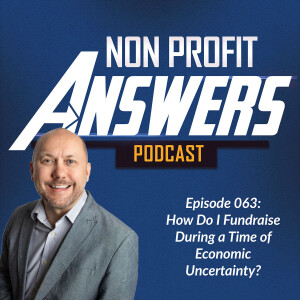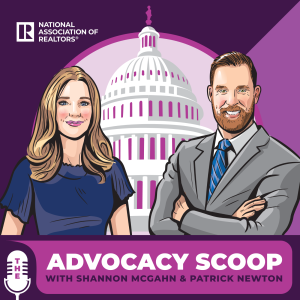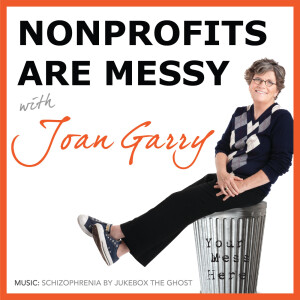

063 - How Do I Fundraise During Times of Economic Insecurity?
Built by nonprofit professionals, for nonprofit professionals. NonprofitPrompt takes the guesswork out of AI content creation with proven prompts for fundraising appeals, donor communications, and more. Join fellow nonprofit leaders at nonprofitprompt.com
The ChallengeWhen the economy is uncertain, inflation is high, and people are worried about their financial future, many nonprofits face a dilemma: Should they continue fundraising or is it insensitive to ask for money when everyone's struggling? This episode addresses this critical question through Patricia's situation - her Tampa homeless shelter has seen online donations drop 25% while demand for services has increased dramatically.
The Key InsightEconomic uncertainty doesn't mean you should stop fundraising - it means you need to fundraise differently.During tough times, people don't stop giving; they give more carefully and strategically. They become more selective about where they give, more focused on impact, and more concerned about organizational stability.
Seven Strategic Adaptations for Economic Uncertainty 1. Lead with Increased Community Need, Not Organizational Need- Focus on how economic conditions create greater community need
- Position donor giving as community investment, not organizational bailout
- Example: "As inflation affects Tampa families, 40% more families need shelter" vs. "We need funding to keep our doors open"
- Donors want clear, immediate results during uncertain times
- Focus on direct services rather than capacity building
- Be specific: "$75 provides three nights of emergency shelter" vs. "Your gift supports our programs"
- Create compelling opportunities for smaller gifts
- Add lower giving levels: if you typically ask for $100-500, add $25-100 options
- Each level needs specific impact: "$25 provides emergency meals for three days"
- Keeping existing donors is more cost-effective than finding new ones
- Increase thank-you calls, impact updates, and personal attention
- Help current donors feel so connected they maintain giving while reducing support elsewhere
- Be transparent about challenges while showing responsible management
- Share program expense ratios, reserves, and board oversight
- Frame challenges in terms of community need: "We've reviewed our budget to ensure every dollar helps people"
- Wrong: "We need $50,000 to keep programs running"
- Right: "We need $50,000 to shelter families facing eviction due to economic stress"
- Make donors feel like community rescuers, not organizational bailouts
- Donors want gifts to go further during tough times
- Promote matching gifts heavily: "Every dollar doubled for families in crisis"
- Create collaborative opportunities with businesses and foundations
"Isn't it insensitive to ask during hard times?" People often want to help more during uncertainty because they understand financial worry. Acknowledge conditions: "We know times are challenging. That's why your support matters so much."
"Won't donors give less?" Some will, and that's okay. A donor reducing from $500 to $200 is still a donor. A donor who stops entirely because you stopped asking is a lost relationship.
"Should we cancel major gift asks?" Never. Major donors are often least affected and may increase giving. Focus on immediate impact and be sensitive to those affected by losses.
Success StoryA food bank during the 2008 recession saw 60% increased demand and 20% decreased revenue. By implementing these strategies - focusing on community hunger rather than budget shortfalls, creating smaller giving options, and increasing donor stewardship - they recovered lost revenue and increased it by 15% within eight months while building stronger donor relationships.
Key TakeawayCommunity need likely increases during tough times, making the case for supporting your organization stronger, not weaker. Economic uncertainty creates both challenges and opportunities. Organizations that adapt their fundraising strategies to match donor psychology during difficult periods often emerge with stronger relationships and more sustainable revenue.
The goal isn't to avoid fundraising during uncertainty - it's to fundraise more strategically, acknowledging economic realities while demonstrating urgent community need.
More Episodes
All Episodes>>You may also like
Create Your Podcast In Minutes
- Full-featured podcast site
- Unlimited storage and bandwidth
- Comprehensive podcast stats
- Distribute to Apple Podcasts, Spotify, and more
- Make money with your podcast












